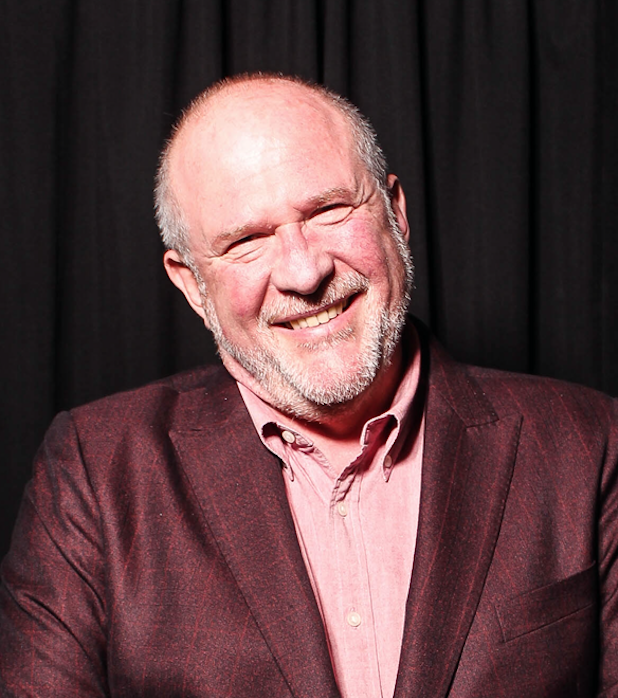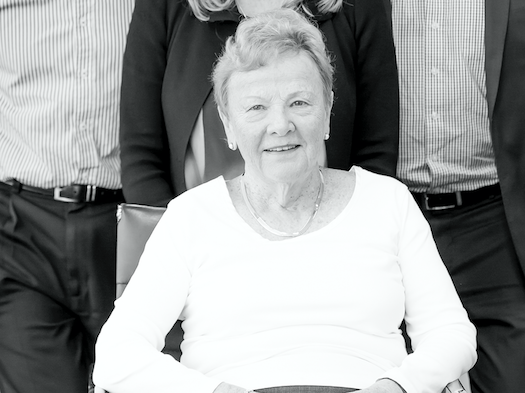Our most popular profile of 2016 – now unlocked.
It is a strange paradox that media moguls can often be the most media-shy.
It took the better part of two years to persuade Janet Cameron to grant us this interview. You won’t find her on Twitter, facebook or LinkedIn. There’s only a brief mention of her on the Grant Broadcasters website – and even her own company has the skinniest of Wikipedia pages, a list of stations and that’s about it. The last time I recall seeing her quoted in print was in Mark Day’s column in The Australian, back in 2008.
I put this to Mrs Cameron who merely scoffed, saying, “What have I got to say? Nothing really. There are a lot more interesting people. I’m a relic.”
Yeah, right…
In truth, Janet Cameron may not have a lot to say – she’s not what you might call “opinionated” – but what she does say is of high value and carries considerable weight.
She was born Janet Grant in 1938 only child of Christina and Walter. Grant Broadcasters was founded by her father who had been a broadcast technician for 2KY Sydney, 2KA Katoomba and 2LT Lithgow before setting up a partnership with an old vaudevillian, Eddie Williams to purchase 2BS, Bathurst and then 2DU in Dubbo which he ended up owning outright.
All this happened in the middle of World War II. 2DU was losing money because it was low powered (only 200 watts). In those days, before television, radio rate cards were determined by transmitter power. And because 2DU’s power was low, its advertising rates were also low which meant the station couldn’t attract the popular nationally syndicated shows of the day such as Jack Davies and Bob Dyer’s Pick a Box.
“I recall many, many conversations around the dinner table, with my father’s frustration of having to go to the control board and trying to get an increase in power,” says Mrs Cameron.
“All I ever wanted to do when I was a kid was work at the radio station,” she recalls. “Dad would go down and do the second mail after dinner every night and if there were birthday calls, I would write out the birthday calls.
“I was 12 years of age, so I guess it was like the greengrocers where the family all come in and help.”
Nonetheless, Janet decided she needed a “proper” job and enrolled in teachers college and then taught high school commerce and business for five years before she was married. “And then I was at home for 10 years with Mum – she took over (the radio) after dad’s death.”
Walter passed away with acute Leukaemia in 1961 aged just 58. It was a disease that usually afflicts the very young or the old – rarely someone in middle age. Which prompted the doctor to ask what he did for a living.
“The doctor asked whether radio was a very stressful job? And mum said no. But I said it’s what my father does in addition to that. And, I think this is kind of important, because it sets the framework for why I have a love of country and regional markets and why I think they’re great.
“Dad was involved in everything. He was an alderman at the council and he was president of the rotary club and president of the chamber of commerce. Honestly there wasn’t a thing that was going on in the town of Dubbo then that my father wasn’t involved in. He was out every night of the week.
“He died worrying about an old age people’s centre he was trying to assist in setting up. So, I guess that for me – even though I lived in Sydney for many, many years, I still think there is a wonderful community in regional centres and I think that’s something that Sydney people, any city people, really miss out on – including my children,” says Mrs Cameron.
Then at around age 33, she took over the reins of the family business along with the family’s values.
“Core values… My parents worked very hard,” she recalls, “I don’t think they had a holiday till I was 19. That was my first time away with my parents. I don’t think they expected the staff to work hard. But they worked just as hard. They had a great relationship with the staff.
“They were very conservative (with money). I remember my father would not have a cheque account. He said if I can’t pay for it, I don’t get it!
“Also, I remember an Aunt telling me when we were in Lithgow – I was probably four years old then. She took me to the movies and there was a little ice cream shop next door. She went to buy me an ice cream and I said I can’t have an ice cream from there, we’ve got to go up there because that one doesn’t advertise and that one does. I still drive my family mad saying, well, if we want to buy a car we have to buy it in one of the markets where we operate. It’s getting trickier because there’s a few more markets but I always tried to support the businesses that were supporting us to the best of my ability.”
So here she was – a young successful business woman in the early 1970’s in, what was then, very much a mans’ world of radio. Later she was made the first female President of The Federation of Australian Radio Broadcasters (F.A.R.B.) Yet, if you are looking for someone to fly the feminist flag, you’d best look elsewhere.
Did Janet ever feel marginalised, disrespected or taken lightly because she was a woman?
“Never. Never. No, never,” she says emphatically.
“I like men. I like the way they think, so I don’t have a problem.
“I would sit with people like Ronald Haig-Muir, Ron Camplin and Geoff Condon. These were all the guys who I had a coffee with and they really gave me the sort of information I needed to get a handle of where the industry was. I’m just a broadcaster. I work in radio just like they do.
“I never had any bad experiences.
“In fact, the late Des Foster set up a group – an older boys lunch of a Friday in Chinatown and he rang me one day and said come and have lunch. I thanked him for the invitation but I couldn’t make it. And he said no, no… that’s a permanent invitation to join us. So, I said (to a group of women) in the place where I live, I’ve just had lunch with 17 men and me. And they were all saying, you should be sharing, Janet.
“I wonder if women today are doing themselves a disservice? But we won’t go there. I consider myself very lucky. I had a wonderful husband. I think girls today are pretty lucky, quite frankly.”
It was that boys’ club and the associations they formed, such as the Regional Radio Bureau, that taught Janet a lot about the art of selling and presentation by sales legends such as Norman Taylor and Les Hay.
In 1972, Grant Broadcasters consisted of one station, 2DU Dubbo. It was debt free. By 1986 three more stations, with some careful financing, had been added to the network: 2ST Nowra, 2PK Parkes and 2MG Mudgee. Mudgee, which is where I met Janet Cameron for the first time, circa 1980, was little more than a shed in the middle of a cow paddock. Legend has it that an actual cow leaned through an open studio window one morning and gave off a loud moo in the middle of the breakfast show.
“My kids said to me when they saw it,” Janet recalls, “Did you see that before you bought it, mum? But Mudgee today is a great little market. It really has grown and I loved it anyway.”
But then in 1986, disaster struck, kind of. The normally cool headed, sharp as’ Janet Cameron was distracted for a moment and sold off three of her four radio stations, leaving only 2ST, Nowra – a decision she regretted almost before the ink dried on the contracts.
“An offer came out of the blue which I wasn’t expecting. I should have just taken a holiday, I think. I was the President of the industry association (FARB) and we were fighting very hard for FM supplementary licences and that was a big thing. It was so important that we got that.
“Negotiations with government went backwards and forwards. We would think we were getting there and there would be a change of government and we’d all go back to square one with a new minister.
“I felt responsibility very keenly. I didn’t like being President because I was always quite happy to argue on behalf of whatever I owned but I was less confident doing it on behalf of the industry because I always thought unless I go and talk to each and every person, am I really representing their interests? I don’t have collective wisdom of everything. So, it really got to me and then (husband) Dugald was worried about me. I couldn’t sleep. I’d be pacing up and down and getting upset and excited.
“And then this offer came out that I wasn’t expecting. So, I took it in the belief that I’d buy it back again in a year’s time for half what I sold it for but that never happened. In fact it was sold again for almost twice what they’d paid.”
“I never did get my beloved Parkes and Dubbo and Mudgee back,” laments Janet. They are now owned by Bill Caralis’ Super Radio Network. All was not lost, however. Not by a long chalk.
In fact, now cashed up, bigger and better opportunities were within Grant Broadcasters’ reach.
“Stan Wilmott asked me if I would join with him and get a group together to apply for the new Gold Coast and Gosford licences. There were 14 applicants on the Gold Coast. We won the Gold Coast but we didn’t win Gosford. Then Muswellbrook came on the market.”
And so it started, the acquisition trail that would lead to the biggest family owned network in Australia. 55 stations, at last count.
Interest rates at the time were 17%. Janet’s take on it? “I always thought how awful is that? What incentive is there for anybody to work if you’ve got money? Why wouldn’t you just invest it? Why wouldn’t you sit back? I guess I’m still too young to be sitting back.”
After all, she’s only 78.
Read Part Two.
Read Part Three.

Peter Saxon


An extraordinary family business that goes from strength to strength.
Great read, some things there I didn't know
I learnt a bit. Looking forward to part 2
Terrific story Peter- shedding light on a fascinating albeit largely unknown radio proprietor